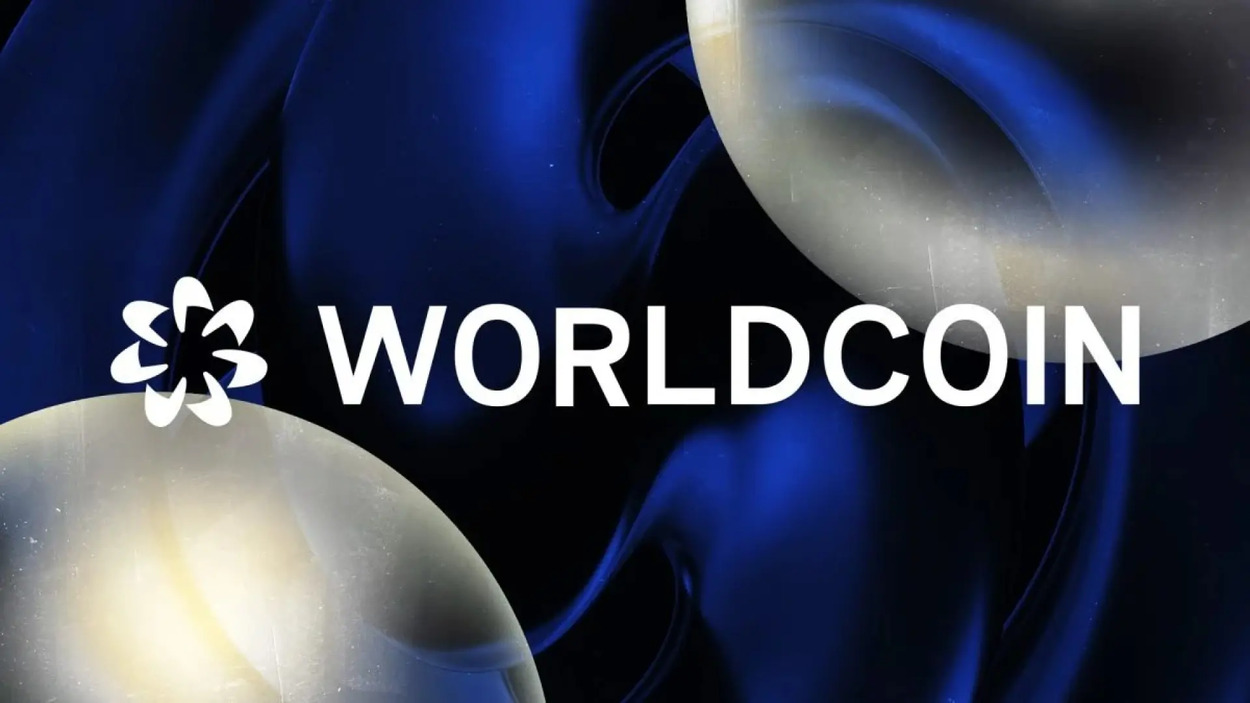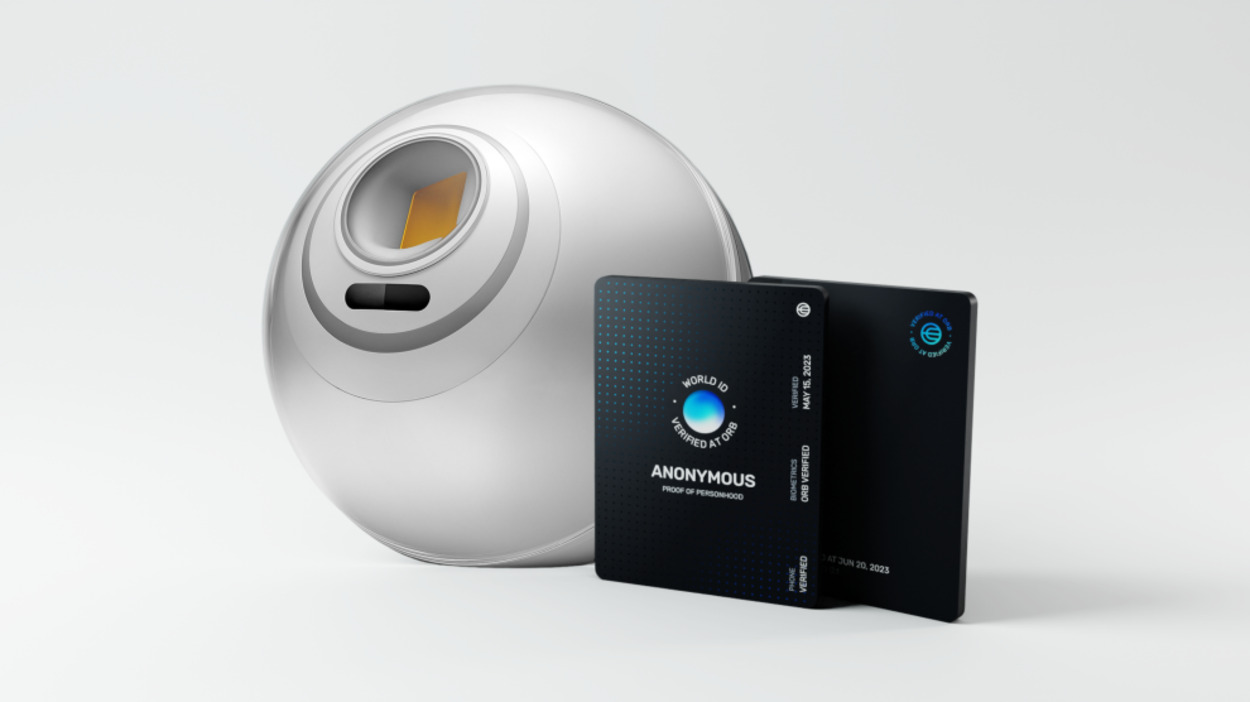
Worldcoin, the global crypto project founded by Sam Altman, the CEO of OpenAI, launched this week, with the promise of building a system that accurately distinguishes “humans from AI online,” thus paving the way to a “global democratic process” and a means to uplift billions of people from poverty.
The project is built on a strange AI-enabled eyeball-scanning technology from Tools for Humanity, the company founded by Altman. As Business2Community reported following the completion of its Series C funding in May, Worldcoin promotes and encompasses several projects, including a World ID, World App, and a crypto wallet.
“As we embark on the age of AI, individuals must be able to maintain personal privacy while proving their humanness,” Alex Blania, CEO and co-founder of Tools for Humanity said in May. “In doing so we can help ensure that everyone can realize the financial benefits that AI is poised to deliver.”
So far, the startup has raised $250 million from investors led by the likes of Andreessen Horowitz, Khosla Ventures, and Reid Hoffman, TechCrunch reported.
Giving Up Your Privacy For $55 in Worldcoin
Worldcoin “could drastically increase economic opportunity, scale a reliable solution for distinguishing humans from AI online while preserving privacy, enable global democratic processes, and eventually show a potential path to AI-funded UBI (universal basic income),” according to the co-founders’ letter published in the project’s website.
Unlike other crypto projects which investors spend money to acquire, Worldcoin (WLD), is not for sale. Users who give consent to have their eyeballs scanned, giving away valuable identifiable information, receive 25 WLD tokens, worth around $55 at the time of writing.
Tools for Humanity recorded over 2 million signups during a trial period by scanning people who willingly gave the startup access to their biometric data.

The company wants people to adopt Worldcoin as a “digital passport,” Reuters said following the debut on July 24. With that in mind, all holders of WLD undergo “an in-person iris scan using Worldcoin’s ‘orb,’ a silver ball approximately the size of a bowling ball.” WLD tokens are only minted after the device proves that the person is a real human and not an AI.
Although Tools for Humanity presented oodles of benefits the global population could gain by adopting Worldcoin, the project is facing legitimate privacy concerns, especially in Europe. Electronic Privacy Information Center, a privacy-oriented firm joined Britain’s data agency the Information Commissioner’s Office (ICO) in castigating the Worldcoin for potential corporate control of large-scale biometric human data.
“We note the launch of Worldcoin in the U.K. and will be making inquiries,” an ICO spokesperson said in a written statement to Decrypt.
Assessing the company’s privacy exposes major loopholes, with Worldcoin stating that it would be sharing data with its subcontractors. In addition, governments and their authorities will also be allowed to access the database.
“Digital ID systems increase state and corporate control over individuals’ lives and rarely live up to the extraordinary benefits technocrats tend to attribute to them,” Madeleine Stone, senior advocacy officer at Big Brother Watch said in another Reuters report.
What Could Go Wrong
The basic idea of scanning people’s eyeballs for biometric identity is not only absurd but infringes on the privacy of the masses, most of whom come from developing nations. Surely, could Tools for Humanity not have found another way to distinguish humans from AI other than performing an incredibly personal identity check?
Iris recognition is a significantly understudied area. Therefore, it is not clear what could go wrong in the future other than possible data breaches, which might expose people’s very personal data.
Nonetheless, the technology is developing and who knows what sort of infrastructure might be built on top of it, whether malicious or not. In the US people already feel unsafe that they are being watched by government agencies. Now to think of a database that has biometric information of billions of people at a global scale – everything could go wrong.
Worldcoin: Universal But Only for Developing Nations?
The project, harnessing the power of the Ethereum blockchain, claims to be universal but is targeting people from developing nations across North America, Europe, Asia, and the Middle East.
Since Worldcoin launched, proof of personhood demand has surged. On average, a unique human is now verifying their World ID every 7.6 seconds & new records are being set daily.
Thank you for your patience with the project as more work is done to better meet worldwide demand. pic.twitter.com/gPmr0oQWCR
— Worldcoin (@worldcoin) July 28, 2023
Regulatory restrictions in the US might not allow Altman to launch the project in the Biden-led country on top of 10 other countries like Russia, Iran, and Cuba. However, this did not stop Tools for Humanity from running campaigns in New York, San Francisco, and Miami.
“The consent form has three options: don’t agree to anything (no data collected and no scan happens), agree to Orb scan but opt out of data custody (data collected, but temporarily stored), or agree to Orb scan and full data custody,” the TechCrunch.
Altman has claimed cues for WLD are endless, especially in India. Meanwhile, the future of Worldcoin remains to be seen amid all the concerns being raised. If Tools for Humanity manages to keep the data collected safe, perhaps the project could deliver on its promises.
Related Articles
- 15+ Best Crypto To Buy Now – Which Is The Best Cryptocurrency to Invest in July 2023?Physics
- Twitter Erupts After Claimed Ambient Superconductor Discovery: Is It the Greatest Find of the Century or Fake?
- Here’s How You Can Use Shopify’s AI Tool Sidekick to Boost Your E-commerce Business
What's the Best Crypto to Buy Now?
- B2C Listed the Top Rated Cryptocurrencies for 2023
- Get Early Access to Presales & Private Sales
- KYC Verified & Audited, Public Teams
- Most Voted for Tokens on CoinSniper
- Upcoming Listings on Exchanges, NFT Drops